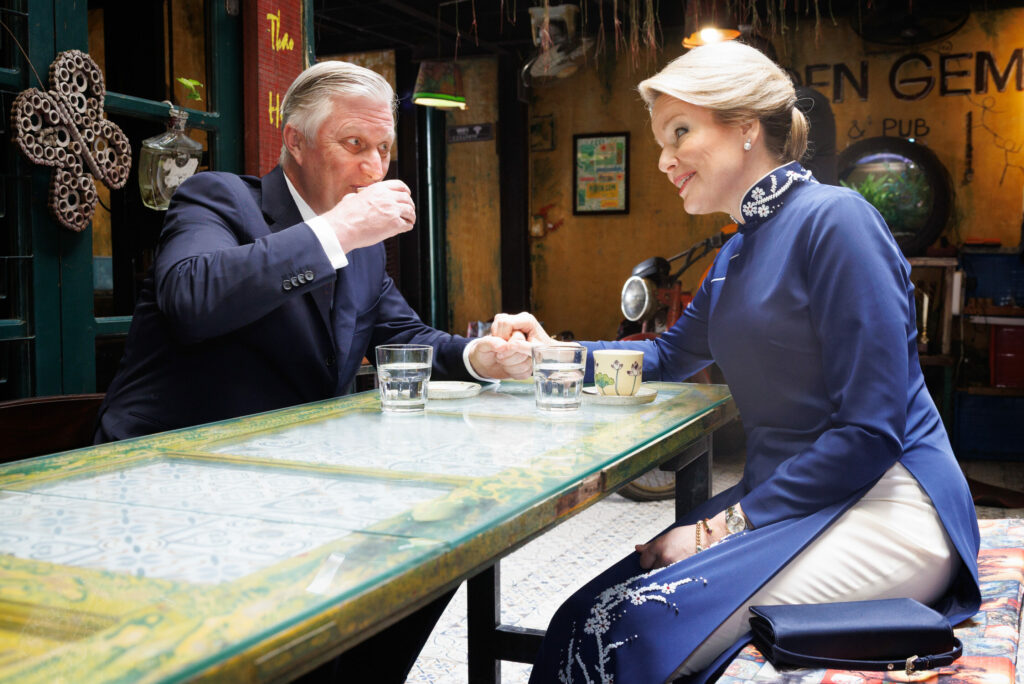On the back of a fruitful state visit of Belgium to Vietnam, Belgian tourists will soon no longer need a visa for short stays in Vietnam, a move expected to boost tourism and business ties between the two nations.
Vietnamese Prime Minister Pham Minh Chinh officially made the commitment to relax visa requirements for Belgian citizens following a meeting with King Philippe, Foreign Minister Maxime Prévot announced on Wednesday. This is Belgium's first state visit to Vietnam and marks 50 years of diplomatic relations between the two nations.
Prévot hailed the visa decision as one of the many achievements of the state visit. The waiver has yet to be finalised and will still need to be implemented by Vietnamese authorities.
The visa waiver would apply to Belgian nationals staying for fewer than 15 days in the country. Belgium would become the eighth European country to enjoy relaxed visa rules to the south-east Asian nation, following France, Germany and Denmark. The policy will not be reciprocal, but instead Belgium will help Vietnam in its talks with the EU on fisheries and other diplomatic measures.
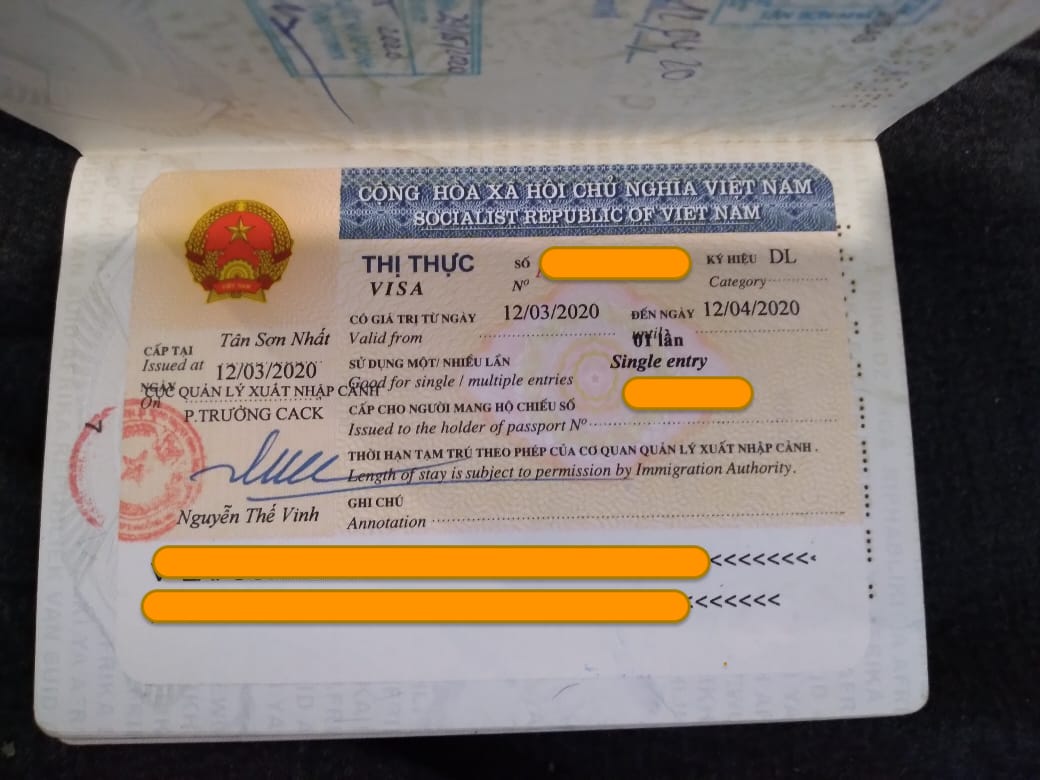
For short trips, Belgians will soon no longer need to apply for a Vietnamese visa. Credit: Onlinevisavn/Wikimedia Commons
The future visa policy aims to facilitate tourism and business trips, which were previously frustrated by visa requirements. Vietnam has become an increasingly popular destination for Belgian tourists. In 2024, 31,730 Belgians visited Vietnam, up 120% from the previous year, according to statistics from the Vietnam National Authority of Tourism.
The visa decision is just one of the outcomes of the successful State visit to Vietnam, which was accompanied by a delegation including the Minister of Foreign Affairs, the Minister-President of the Brussels-Capital Region Rudi Vervoort, Walloon Minister-President Adrien Dolimont, and Flemish Minister for Brussels, Cieltje van Achter. The delegation is also composed of Belgian businessmen and academics.
Deepening ties
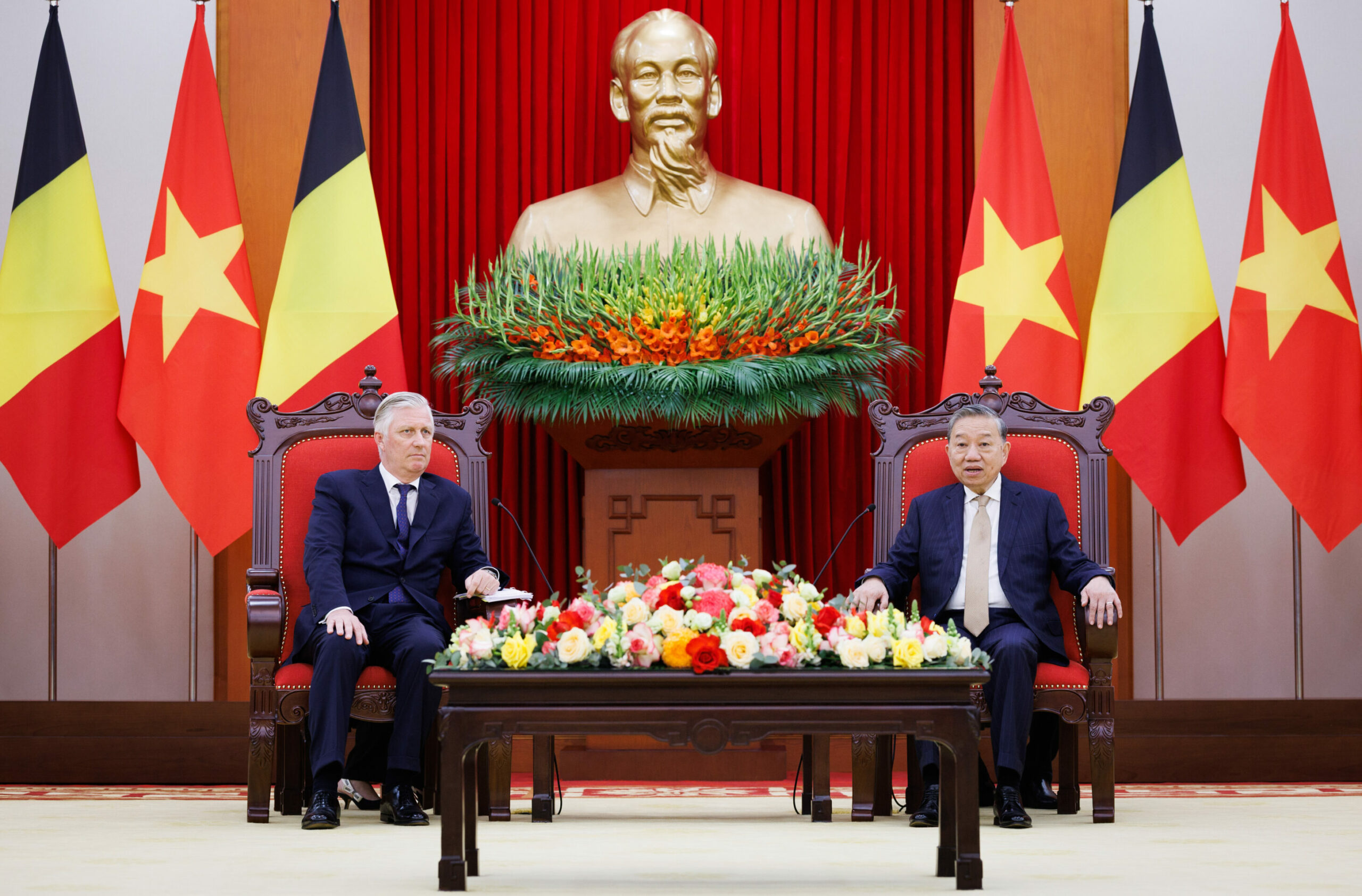
King Philippe of Belgium and Vietnamese General Secretary of Communist Party To Lam pictured during a meeting at the headquarters of the Communist Party of Vietnam, in Hanoi, Vietnam, on Tuesday 01 April 2025. Credit: Belga/ Benoit Doppagne
Day one of the state visit emphasised political cooperation and symbolic gestures of friendship.
King Philippe and Queen Mathilde started their visit with ceremonial tributes, laying wreaths at the Monument to the National Heroes, which honours Vietnam's struggles for independence, both from France and later its fight for unification. The Royal Couple also visited the mausoleum of Communist revolutionary Ho Chi Minh’s, who declared Vietnam’s independence in 1945.
Bilateral meetings were held between King Philippe and Vietnamese President Luong Cuong, which led to several key agreements on issues such as climate change mitigation, biodiversity conservation, and global health initiatives.
King Philippe also spoke with other senior Vietnamese officials, including General Secretary of the Communist Party Tô Lâm and President S.E. Luong Cuong.
During her official visit, Queen Mathilde focused her efforts on promoting humanitarian cooperation between the two nations, notably visiting the National Children's Hospital in Hanoi. This visit highlighted 30 years of Belgian-Vietnamese collaboration in paediatric healthcare, particularly in children's mental health.
Belgian industrial know-how
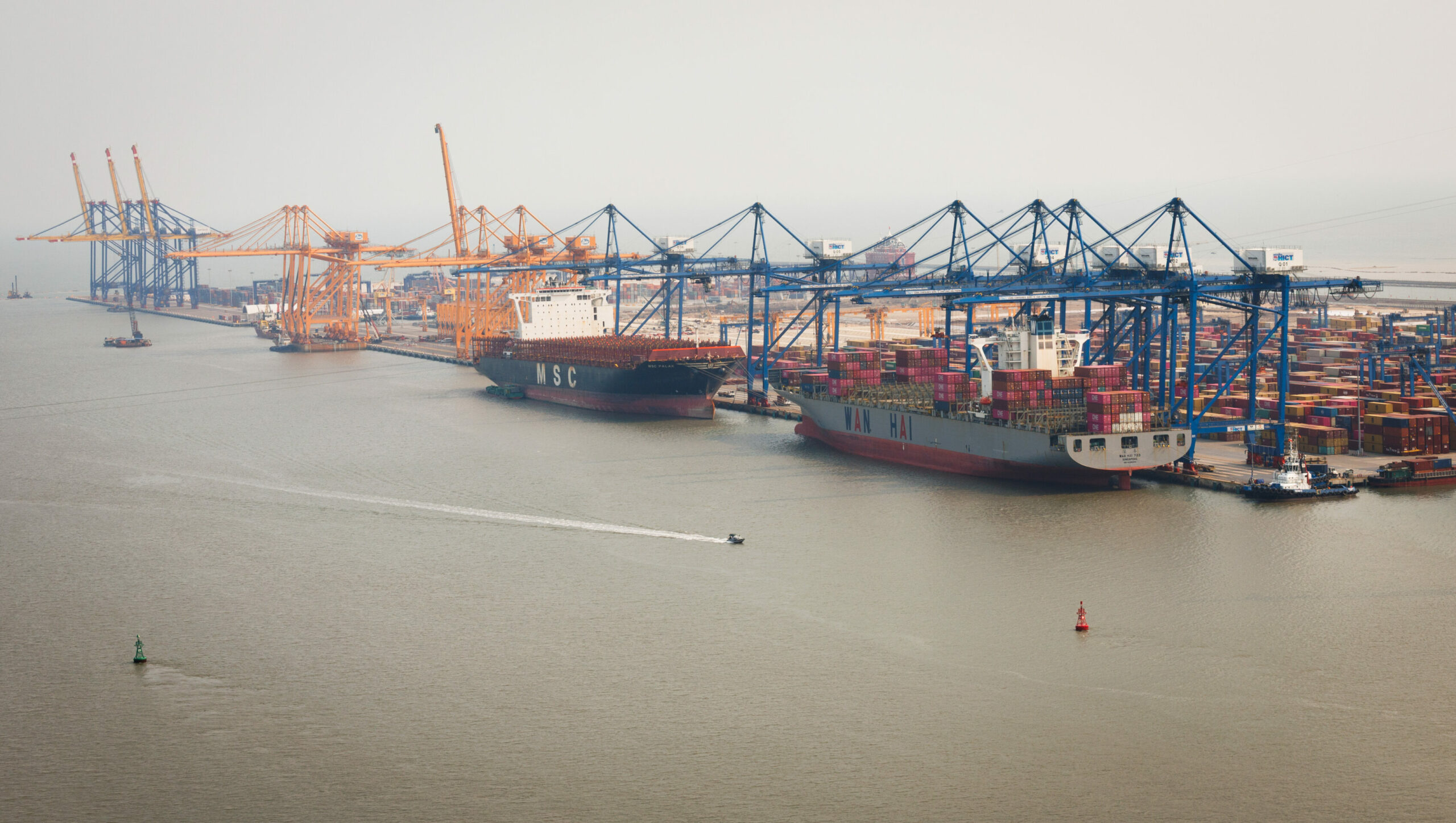
Panoramic views of the Deep C Industrial Zones from the Cat Hai cable car terminal to the Cat Ba cable car terminal and back, during a State Visit to Vietnam, on Wednesday 02 April 2025 in Hai Phong. Credit: Belga/ Benoit Doppagne
On day two of the delegation’s visit, Belgo-Vietnamese economic cooperation took centre stage in Hai Phong, Vietnam’s industrial heartland.
The delegation inaugurated the new headquarters of Deep C, which is the largest Belgian investment in Vietnam. Deep C is a Belgian firm specialised in the development and operation of industrial zones and port infrastructure.
It notably operates 3,400 hectares of economic infrastructure in Hai Phong and Quang Ninh forming Vietnam’s largest industrial cluster. Since its inception in 1997, Deep C has received nearly half a billion euros in investment and expects to attract further international investments totalling over $7 billion.
Belgian and Vietnamese business leaders convened for a high-level lunch to discuss further collaboration opportunities, focusing on technological exchanges and sustainable industrial development.
A helping hand
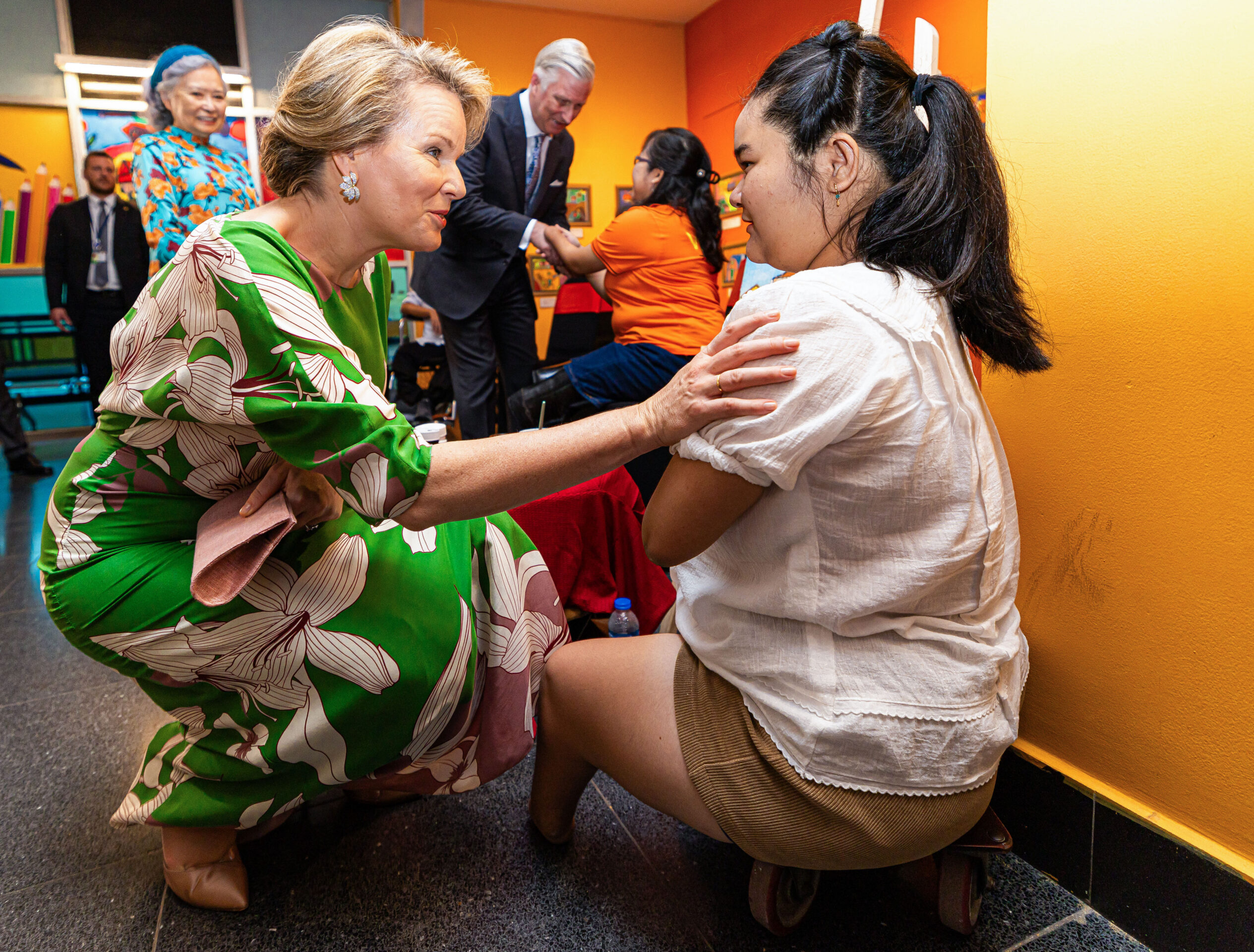
Queen Mathilde of Belgium and King Philippe of Belgium pictured during a visit to the War Remnants Museum, in Ho Chi Minh City, Vietnam, on Thursday 03 April 2025. Credit: Belga/ Benoit Doppagne
The final day of the royal visit brought attention to social and environmental initiatives in Ho Chi Minh City. King Philippe and Queen Mathilde visited The Cocoa Project managed by the Belgian company Puratos. This project provides bakery training to disadvantaged youth.
A significant moment of solidarity occurred at the War Remnants Museum, where the Royal Couple met with victims of Agent Orange. During the Vietnam war, the United States Air Force sprayed the Vietnamese, Lao and Cambodian jungle with a powerful herbicide in a bid to strip the canopy and facilitate spotting enemy troops.
Related News
- Belgian economic mission to India: What investments were announced?
- Turning to Asia: Belgium strengthens ties with Singapore during three-day visit
Dioxin, one of the herbicides inside the mixture, had a lasting effect on the local population, leading to a series of birth defects and chronic illnesses. Years later, the effects of the chemical are still felt within the population.
Belgium has actively supported remediation efforts and victim assistance, including passing acts to facilitate international aid and providing technological and medical support through firms such as Haemers Technologies. The Aquitara Impact Fund, established with Belgian support, is working on large-scale soil remediation in affected areas.
Concluding the visit, the delegation engaged in discussions involving representatives from the United Nations, civil society, and businesses, emphasising Environmental, Social, and Governance (ESG) strategies.

